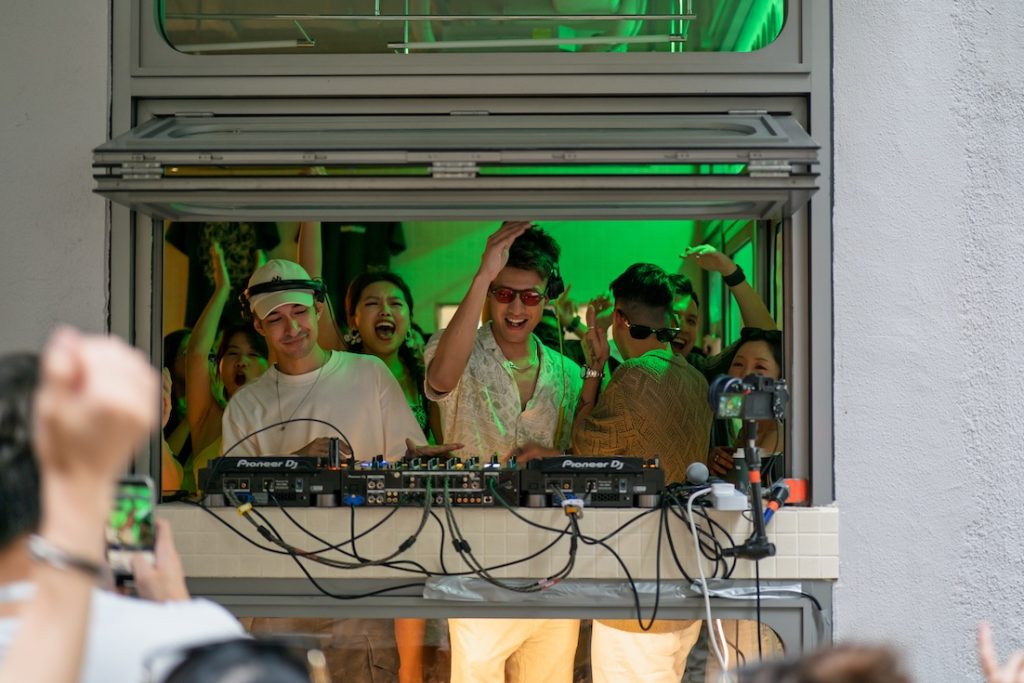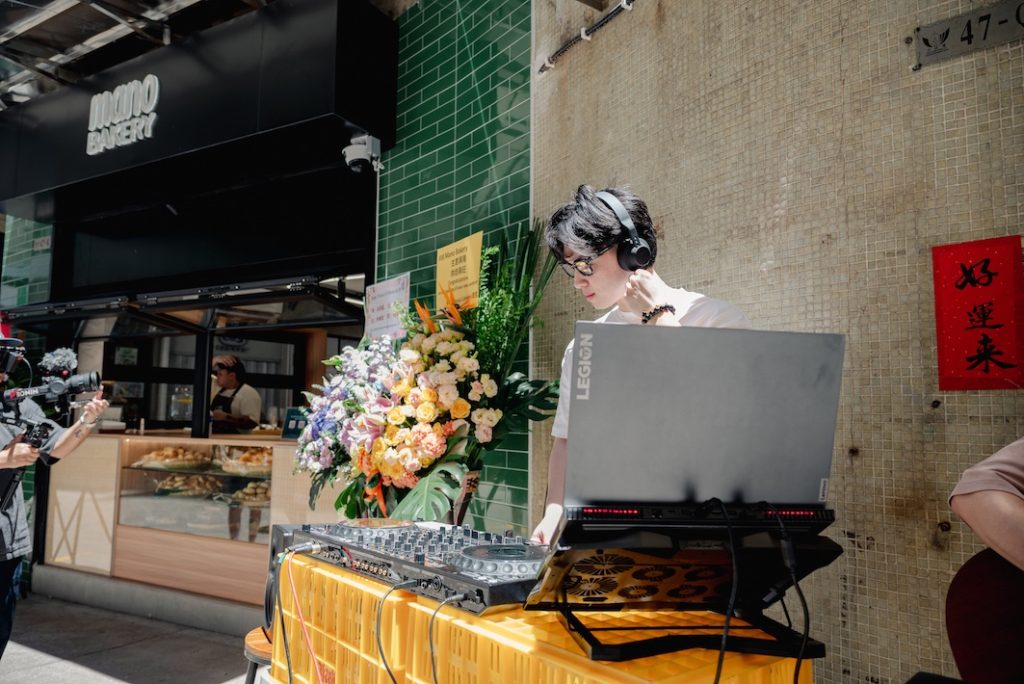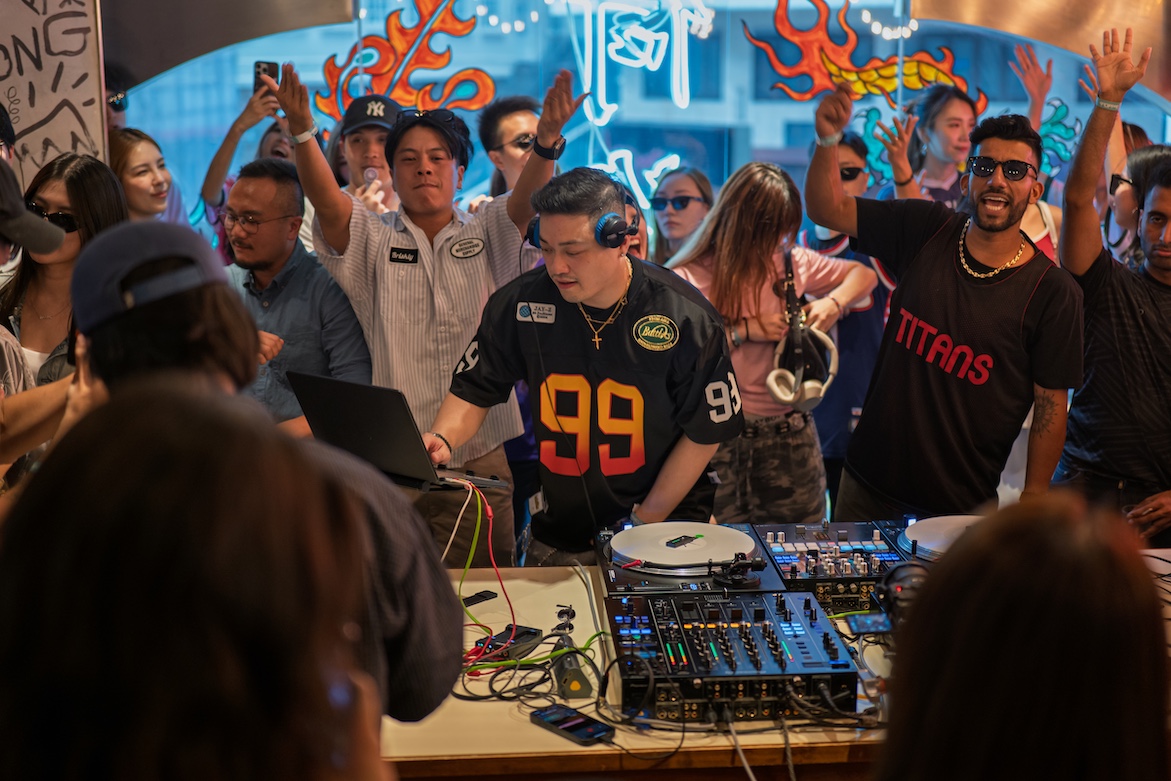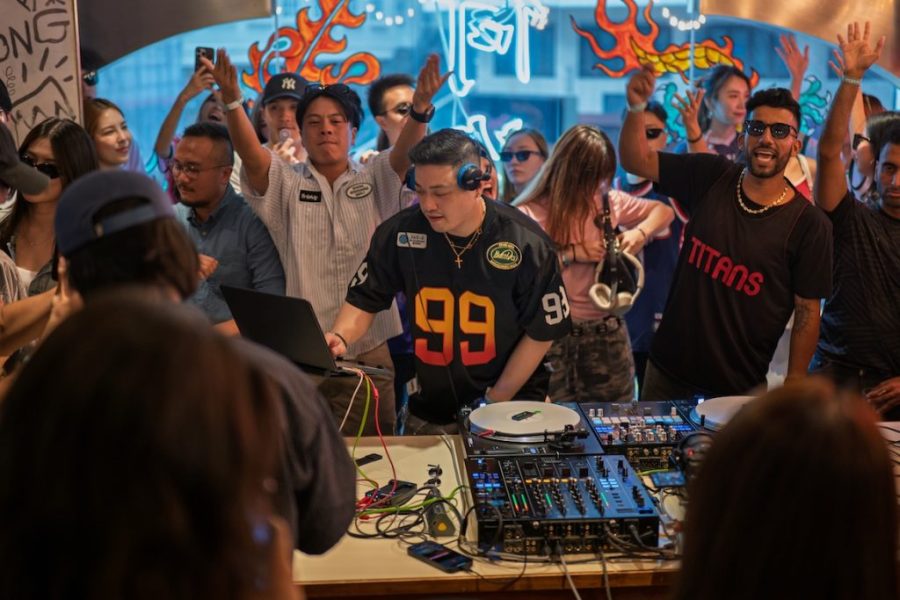Once confined to late night dingy basements, and fuelled by alcohol and drugs, dance parties have been undergoing a transformation in recent years. Many are taking place in the daytime, held in eclectic locations from cafés to hair salons. Significantly, most guests are on nothing stronger than mineral water or caffeine.
Inspired by popular gatherings from Canada to Singapore and Dubai, largely sober curious daytime partying has now reached Macao and Hong Kong.
Macao News spoke to the event organisers of the Social Club parties in Hong Kong, and the owners of Mano Bakery who are hosting the Proofing Room daytime gatherings in Macao, to shed light on the popularity of this trend. Is this just a passing fad or are day parties a reflection of our changing values, and a soft revolution of our times?
“The younger generation is looking for more creativity”
The Social Club Series are “unexpected parties in unexpected places,” all taking place during the day in Hong Kong. Co-founders Sandy and Isaac started organising them just three months ago through their personal love of electronic music. A DJ from Toronto they both liked, DCR Milda, was in Hong Kong and they took a chance by sending him a DM to see if he would play a set for them and their friends in a cafe. The event was pulled off in a week and it went viral, largely owing to Isaac’s background in video production. Very soon after, people started asking them when they would host the next event, and that was how the series began.
We spoke to Sandy and Isaac just days after their fourth event – a hip-hop themed afternoon with a basketball jersey dress code in a secret location in Central, later revealed to be a trendy gastropub. The event was hugely successful. Tickets sold out in advance and the event attracted a diverse crowd – mostly Gen Zs – consisting of international school kids, expats and people from different ethnic and cultural backgrounds aged between 25 to 30s.
[See more: Going to Hong Kong with a bestie? TurboJet has a summer deal for you]
“The clubbing scene has been around for decades… it’s pretty much the same”, says Sandy. “I think the younger generation is looking for more creativity.” For young people bored of the typical clubbing routine of heavy drinking, hangovers and unproductive weekends, the Social Club’s events are a breath of fresh air.
Sandy and Isaac attribute the shift in clubbing culture to Covid. During the pandemic, many clubs and bars were forced to close down, and partygoers had to adapt by going to smaller private venues, usually with close friends. As a result, appetites for parties have changed. Many prefer earlier, quieter and more intimate gatherings.
“What we are seeing in our parties is not just one or two partygoers, but it’s a group of friends,” says Isaac. The shared love of music is a priority among attendees, and a natural sense of community is formed through overlapping acquaintances or friends. The Social Club has in effect created a community of those who enjoy electronic music, crave connection and are generally interested in healthier and more fulfilling lifestyles.

But what about the costs of running these events? Their next event, scheduled to take place across two venues later this month at the Peak, features international DJs from the Philippines and Australia. In exchange for intangible assets such as marketing, video production and essentially a foot in the Asian door for lesser-known international DJs, performers are willing to charge less than their typical rate to work with the Social Club. Art prevails over money in a win-win situation.
What will the future of partying look like according to the Social Club? Sandy and Isaac believe that parties will become more intimate, creative and story-driven, referring to festivals like Wonderfruit and Tomorrowland as examples. “People are more drawn to parties with themes and identities that resonate with them,” says Isaac. Sandy thinks that with the power of social media there will be “more and more independent and distributed organisers” catering to specific communities of people, rather than big organisations like Live Nation who have effectively been dominating and deciding what parties should be like up until now.
With their next event selling out within ten minutes of its announcement, Sandy and Isaac clearly seem to know exactly what they are talking about.
[See more: What summer music festivals are on in Asia in 2025?]
“We wanted to be a community and also be part of the local community”
The Proofing Room kicks off later this month in Taipa’s Mano Bakery, and is a new daytime event series to give local musicians the opportunity to showcase their art in an “intimate setting.”
Macao News spoke to Joao and Olinto, two of the three owners of Mano about their vision for the Proofing Room and why their unconventional venue is intrinsically tied to the creative spirit of their day parties. Olinto tells me that they have always wanted Mano to be “more than a bakery” – it was crucial to them to be a part of the community in Taipa as well as creating a welcoming space for like minded people.
Both Joao and Olinto appreciate the arts and have backgrounds in marketing and creative industries, so art was the natural answer to foster community. “We look at [Mano] as the platform for us to be able to deliver creative expression, whether that be through food or music or art, but all of which are universal languages,” says Olinto. Both agree that Covid has contributed to a greater yearning for connection but also attribute their strong communal values to their Filipino and Brazilian roots.
But why do they think a music event at a bakery will work in Macao? Joao shares that events which take place during the day are an accessible way for people with different types of lifestyles to participate without disrupting their normal schedules, whether it be college kids or parents. As a father himself, Olinto likes how he can still enjoy music and have a good time with his kids without making compromises to his wellbeing and routine. People are “more health conscious” and “intentional” now, he adds.

As a venue, the bakery is also more approachable – everyone is familiar with a bakery, but not everyone is familiar or comfortable with a nightclub. It gives customers and passersby an open and spontaneous invitation to enjoy art and food without it being a serious and planned affair.
[See more: New restaurants to visit in Macao this June]
“[In the past] It’s either you go [to the club] and enjoy it the way it is, or you just don’t go. So now it’s just opening it up for everyone else who has their own version of what a party is or what an event might look like.”
So, what do the Mano crew think the future of partying will look like? Interestingly, like the Social Club, they also look towards music festivals as the way to go – parties that are inspired by large-scale festivals, which have a main act but also lots of small, interactive side activities. There’s an element of choice for the attendee to interact with things that interest them. Parties, says Joao, will be “diverse, purposeful, community centred and experience driven.”
In other words, day parties appear to be more than just a trend, but rather the start of a movement among today’s youth in the SARs. This movement seeks to redefine the unspoken yet rigid rules of partying and foster deeper connections within our communities through the celebration of art. Parties no longer have to be confined to the nightclub: they can be anywhere.






